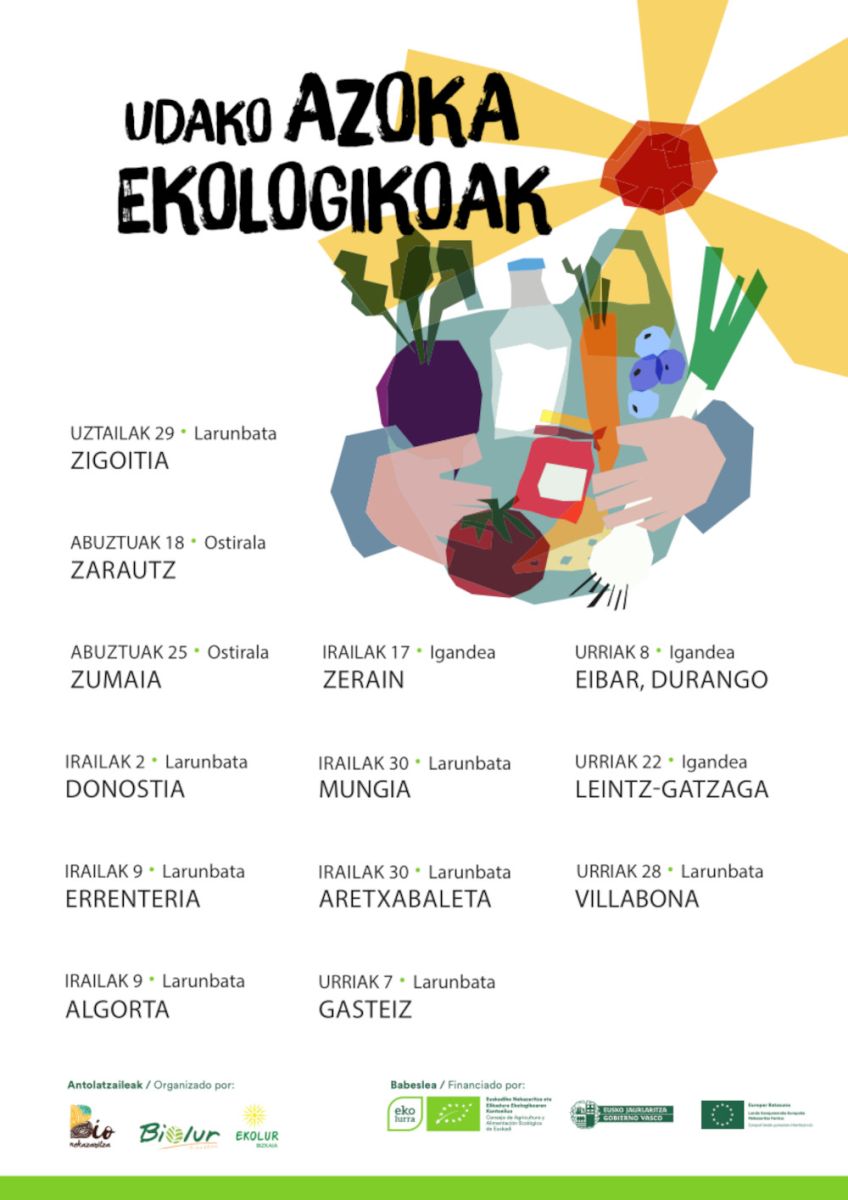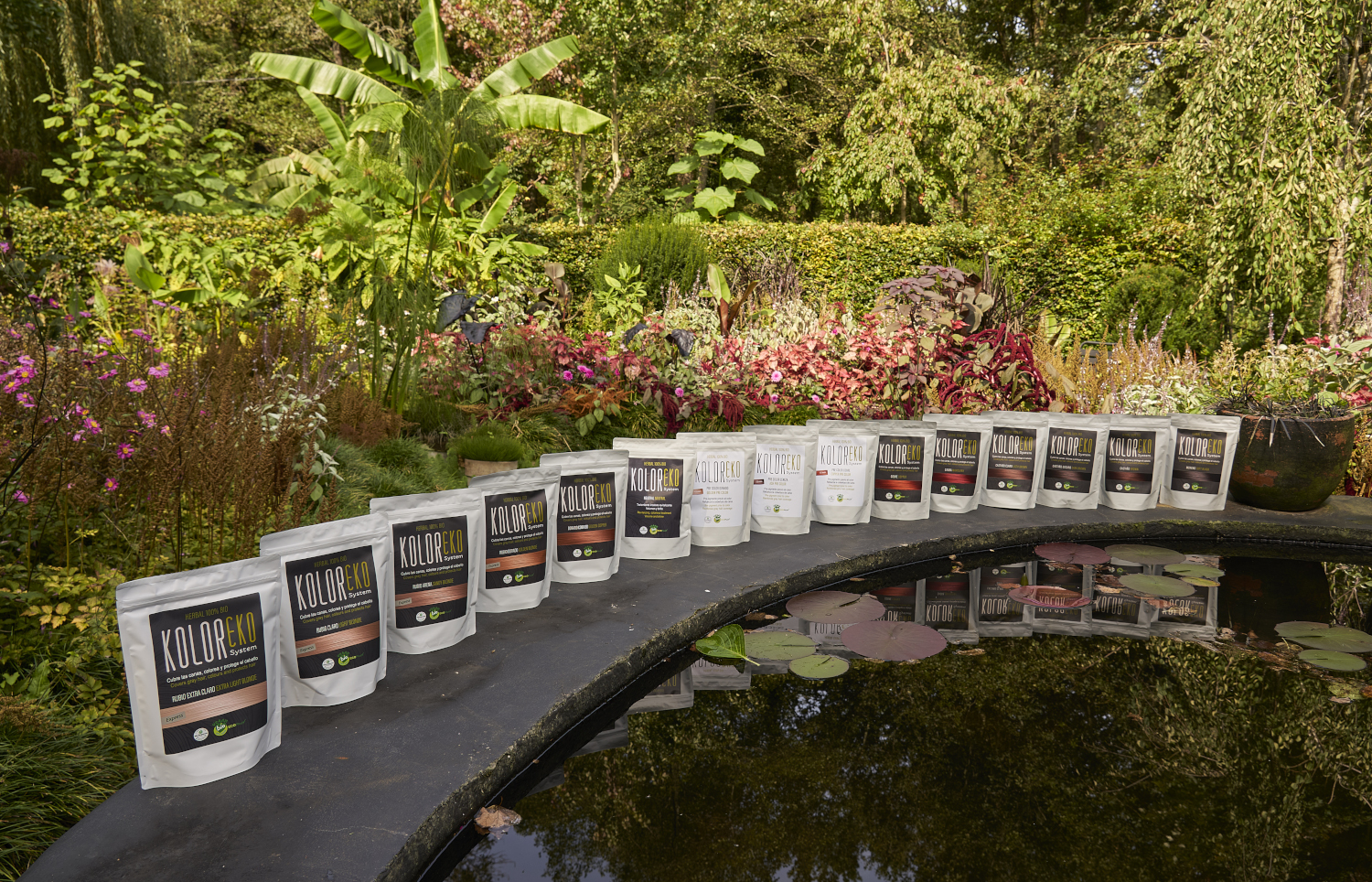Summer Ecological Fairs are underway and organic production is growing in the CAPV
- At CAPV there are 2,600 different foods certified in the ecological model. With the aim of "making this diversity known" of indigenous organic foods, 14 Basque municipalities have jointly organized the Summer Ecological Fairs, local consumption groups and organic production associations in the three territories: Bionekazaritza de Álava, Ekolur de Bizkaia and Biolur de Gipuzkoa. "The summer eco-fairs are the meeting point of professionals who produce in respect of the environment and consumers who show the same commitment and want to buy food of optimal quality", the organizers point out, adding: Boosting direct sales is crucial to ensuring the survival of small local producers and promoting agricultural diversity. From 2016 to the present, the area of ecologically certified soils in the CAPV has tripled, but still only 5% of agricultural soils.

The morning of 25 August will be held in Zumaia the next ecological fair in Eusebio Gurrutxaga Square. The fair will start at 10:00 and from 12:00 to 14:00 will be known "ECOrecipes". The day before, EUR 5 bonds will be available at the Tourist Office.
The first environmental fair this summer was held at the end of July in Zigoitia and has just passed in Zarautz on 18 August. But citizenship has the possibility to buy high-level food at these fairs until October: Donostia (2 September), Errenteria (9 September), Algorta (9 September), Zerain (17 September), Mungia (30 September), Aretxabaleta (30 September), Vitoria-Gasteiz (7 October), Eibar (8 October), Durango (8 October), Leintz-Gatzaga (22 October).
The objective of the organization is to extend the initiative of these fairs that are organized year after year to other locations, "gradually fill the plazas of all municipalities in the supply of organic food". In the words of the Council of Agriculture and Organic Food of the Basque Country: “It’s important to show that with local organic foods we can feed ourselves on a daily basis.”
"As consumers we have the key to driving a fairer, healthier and more sustainable system"
One of the main challenges faced by associations today is the acquisition and purchase of citizenship in the market. They send the following message to the public: "Each purchase option is an opportunity to encourage positive change. Select products that promote sustainability, social justice and equity. As consumers we have the key to drive a fairer, healthier and more sustainable production and consumption system.” And they add: "Boosting direct sales is crucial to ensuring the survival of small local producers and promoting agricultural diversity. Markets allow us to make a direct purchase, in close contact with local producers. This direct connection allows us to know first hand the origin of the products, the elaboration process and the benefits for our health".
Land for organic production continues to grow in the CAPV
In 2022, the Basque Council of Agriculture and Organic Food certified 1,199 new hectares for organic production. In total, 9,104 hectares of ecological land are cultivated in the CAPV. Gipuzkoa has been the territory with the largest increase in its area with an increase of 35% due to the registration of large farmers. Then in Álava with an increase of 12%, and in Bizkaia with an increase of 5%. From 2016 to the present, the area of ecologically certified agricultural land has almost tripled.
Currently, 5% of Basque agricultural land is ecologically certified, far from meeting the objective of the European Green Treaty "From farmland to table": That by 2030 25% of soils will be green. By production, fruit and vegetables (19.20%) and fruit and vegetables (21.05%) are very close to the 25% demanded by Europe.
The Council of Agriculture and Organic Food of the Basque Country currently certifies 746 professionals. The supply of organic food in the Basque Country is large, with a total of 2,600 different foods certified in the ecological model.
These foods are available to the public in the following organic markets (dating poster):

Donostiako Amara auzoko Izko ileapaindegi ekologikoak 40 urte bete berri ditu. Familia-enpresa txikia da, eta hasieratik izan zuten sortzaileek ile-apainketan erabiltzen ziren produktuekiko kezka. “Erabiltzaileen azalarentzat oso bortzitzak dira produktu gehienak, baina... [+]












